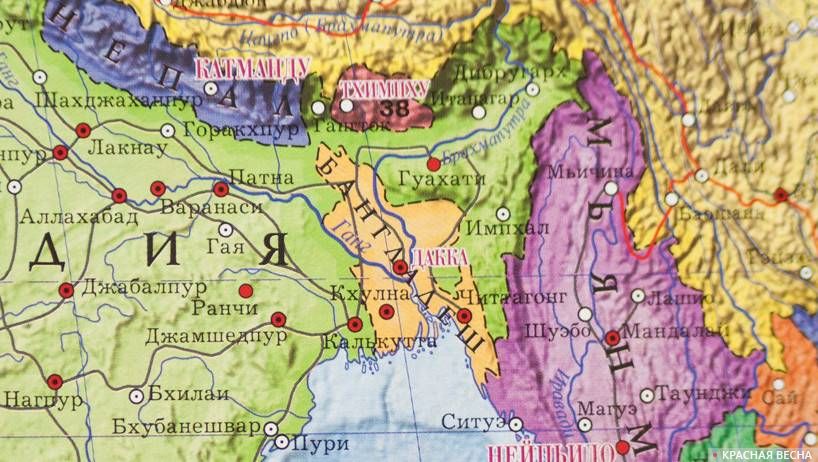
A garment worker was shot dead during a crackdown on garment worker protests in Bangladesh after unions rejected a government pay rise. UCA News reported this on November 9.
The deceased’s husband blamed the police for the incident.
A commission created earlier by the government increased salaries by 56.25% percent, but the strikers demanded a triple increase to 23 thousand taka per month.
“The police opened fire. They shot him in the head…he died in the car on the way to the hospital.”said Mohammad Jamal, husband of seamstress Anjuara Khatun, 23, a mother of two.
Jamal told AFP that police shot dead about 400 workers demanding higher wages in the industrial city of Ghazipur, near the capital Dhaka. “Six or seven people were shot and injured.”– he said.
Bakchu Mia, police inspector posted at Dhaka Medical College Hospital, where the body was taken, confirmed the death but did not provide any details.
Riots broke out again on Nov. 8 in Ghazipur, home to hundreds of garment factories, after 4,000 people protested against a government decision to raise wages, police said.
Thousands of people blocked the road, where at least five police officers were injured, two of them in critical condition, a police inspector who requested anonymity told AFP.
The Dutch Clean Clothes Campaign, a textile workers’ rights group, called the new wages “poverty wages.”
“The new minimum wage will condemn workers to fighting for basic survival for the next five years.” – says the statement.
Many brands that source their clothing in Bangladesh have long promised to pay workers a living wage, but “have never delivered on this, demonstrating the hollowness of those commitments.”
In a statement, US State Department spokesman Matthew Miller asked the panel to “reconsider the minimum wage decision to ensure it takes into account the growing economic pressures facing workers and their families.”
The minimum wage is set by a government-appointed board that includes representatives from manufacturers, unions and wage experts.
Protests over wage increases pose a major challenge to Prime Minister Sheikh Hasina, who has ruled the country with an iron fist since 2009. A resurgent opposition has challenged her rule as she prepares for elections scheduled for before the end of January.
Security in key industrial towns on the outskirts of Dhaka was tightened after unions threatened more protests over what they called a “farcical” pay rise.
Police said around 600 factories making clothes for many of the big Western brands were closed last week and dozens of businesses were looted in the biggest protest in a decade.
During the riots, four factories were burned down and at least two workers died in the fire.
Source: Rossa Primavera
I am Michael Melvin, an experienced news writer with a passion for uncovering stories and bringing them to the public. I have been working in the news industry for over five years now, and my work has been published on multiple websites. As an author at 24 News Reporters, I cover world section of current events stories that are both informative and captivating to read.
